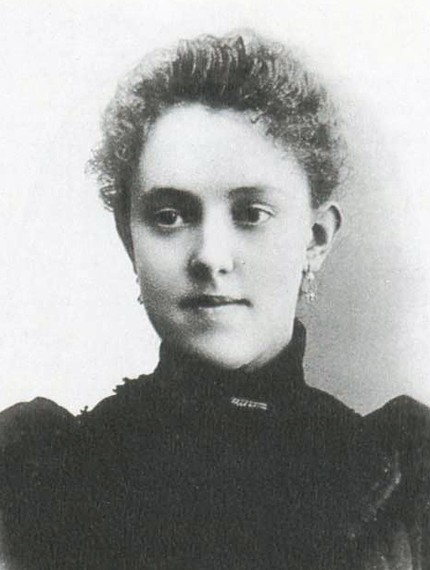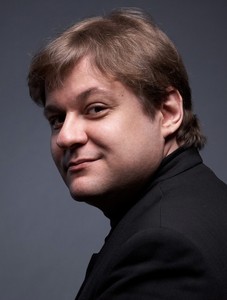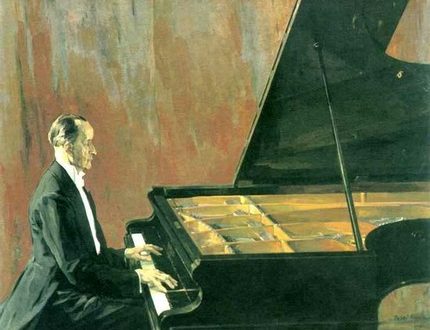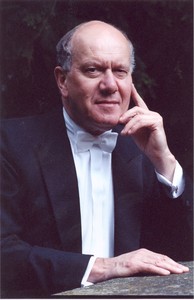
Elena Aleksandrovna Bekman-Shcherbina (Elena Bekman-Shcherbina) |
Elena Bekman-Shcherbina

Back in the mid-30s, the pianist compiled the program of one of her anniversary evenings based mainly on requests from radio listeners. And the reason for this is not only that in 1924 she was a soloist of the Radio Broadcasting, the very warehouse of her artistic nature was by nature extremely democratic. In 1899 he graduated from the Moscow Conservatory in the class of V. I. Safonov (earlier her teachers were N. S. Zverev and P. A. Pabst). Beckman-Shcherbina already at that time sought to promote music among the broad masses. In particular, her free concerts for students of the Agricultural Academy were very popular. And in the first years after the October Revolution, the pianist was an indispensable participant in musical and educational events, she played in workers’ clubs, military units, and orphanages. “These were difficult years,” Beckman-Shcherbina wrote later. “There was no fuel, no light, they practiced and performed in fur coats, felt boots, in cold, unheated rooms. Fingers froze on the keys. But I always remember these classes and work during these years with special warmth and a great sense of satisfaction. Later, during the Great Patriotic War, while in evacuation, during the 1942/43 season, she held a series of lecture-concerts at the Kazan Musical College (together with the musicologist V. D. Konen), dedicated to the history of piano music – from harpsichordists and virginalists to Debussy and Ravel and others.
In general, Beckman-Shcherbina’s repertoire was truly immense (only in radio concerts in front of a microphone, she played more than 700 pieces). With amazing speed, the artist learned the most complex compositions. She was especially interested in the new music of the early 1907th century. No wonder she was a participant in the “Musical Exhibitions” by M. I. Deisha-Sionitskaya in 1911-1900, “Evenings of Modern Music” (1912-40). Many of Scriabin’s compositions were first performed by Beckman-Shcherbina, and the author himself highly appreciated her playing. She also introduced the Russian public to the works of Debussy, Ravel, Sibelius, Albéniz, Roger-Ducasse. The names of compatriots S. Prokofiev, R. Gliere, M. Gnesin, A. Crane, V. Nechaev, A. Aleksandrov and other Soviet composers were especially often found in her programs. In the XNUMXs, half-forgotten samples of Russian piano literature attracted her attention – the music of D. Bortnyansky, I. Khandoshkin, M. Glinka, A. Rubinstein, A. Arensky, A. Glazunov.
Unfortunately, the few recordings, and even those made in the last years of Beckman-Shcherbina’s life, can only give some idea of her creative appearance. However, eyewitnesses unanimously emphasize the naturalness and simplicity of the pianist’s performing style. “Her artistic nature,” A. Alekseev wrote, “is deeply alien to any kind of drawing, the desire to show off skill for the sake of skill … Bekman-Shcherbina’s performance is clear, plastic, completely in terms of the integrity of the form coverage … Her melodious, melodic beginning is always in the foreground. The artist is especially good at works of a light lyrical nature, written in transparent, “watercolor” colors.
The concert activity of the pianist continued for more than half a century. Almost as “long-term” was the pedagogical work of Beckman-Shcherbina. Back in 1908, she began teaching at the Gnessin Musical College, with which she was associated for a quarter of a century, then in 1912-1918 she directed her own piano school. Later she studied with young pianists at the Moscow Conservatory and the Central Correspondence Musical Pedagogical Institute (until 1941). In 1940 she was awarded the title of professor.
In conclusion, it is worth mentioning the pianist’s composing experiences. Together with her husband, amateur musician L, K. Beckman, she released two collections of children’s songs, among which was the play “A Christmas Tree Was Born in the Forest”, the most popular to this day.
Cit.: My memories.-M., 1962.
Grigoriev L., Platek Ya.





